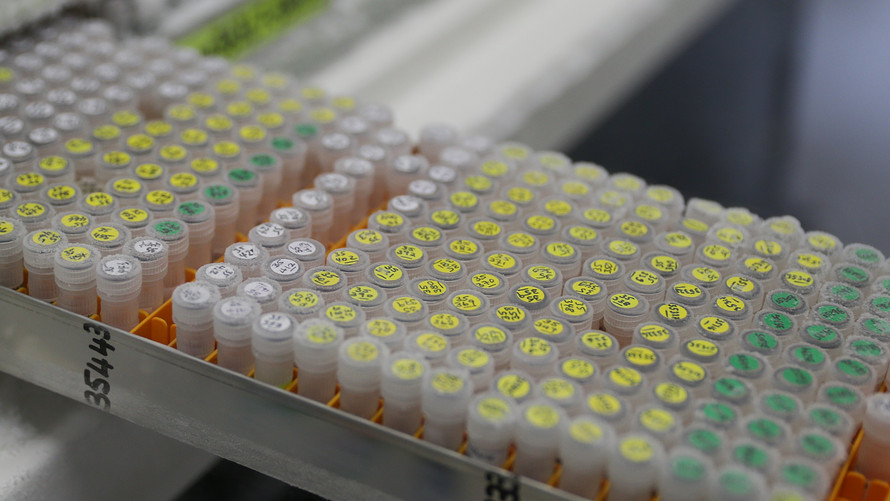Solid Biosciences shares slide 10% as paper says animals suffered toxic crisis in gene therapy trial

Shares of gene therapy companies fell sharply Tuesday, after a report by a prominent scientist revealed the safety concerns that led him to resign recently from a scientific advisory board.
Gene therapy researcher James Wilson, a giant in the field, quit Solid Biosciences Inc.’s advisory board ahead of the company’s initial public offering which was completed last week, because of the possible risks of high systemic dosing of AAV, the company’s delivery system for its cell therapy, according to the company’s IPO prospectus.
Just hours before Solid Biosciences SLDB, -5.06% priced its IPO, it revealed that the U.S. Food and Drug Administration had placed a partial clinical hold on the company’s lead product, SGT-001, a treatment for Duchenne muscular syndrome that involves high-dose AAV gene therapy.
On Monday, Wilson, a University of Pennsylvania professor and head of its gene therapy program, and his team published a paper that revealed that monkeys and pigs used in an animal trial were sent into toxic crisis when given a high dose AAV delivery of a corrective gene.
“We believe today’s publication likely rounds out the explanation for his (Wilson’s) departure,” said RBC analysts in a note.
The paper has implications for companies developing gene therapy treatments, including AveXis Inc. AVXS, +1.26% which is working to develop a treatment for spinal muscular atrophy, said the note. AveXis has already dosed at least a dozen patients with its AVXS-101 product and has not observed toxic reactions, “so it is possible such AEs (adverse events) are not applicable to humans, are only related to the specific variants Dr. Wilson’s lab described, and/or are related to manufacturing impurities – though it could help explain FDA’s apparent scrutiny in analyzing much of AVXS’s preclinical and manufacturing data ahead of filing/approval for the drug,” said the note.
Biogen Inc. BIIB, -1.64% is planning to move its spinal muscular atrophy gene therapy into the clinic last this year and may use the AAV delivery system, as Wilson has worked on that program.
“Regardless, our sense has been that BIIB does not plan to assess their gene therapy as a high-dose systemic IV and is more likely to pursue intrathecal or other local delivery to the CNS, which could potentially avoid this possible toxicity,’ said the analysts.
Sarepta Therapeutics Inc. SRPT, -4.70% is also working to develop a gene therapy treatment for Duchenne muscular dystrophy in competition with Solid Biosciences, they said.
Solid Biosciences shares led the decliners, sliding 11% in midmorning trade to $21. That puts it above its issue price last week of $16, but below its close at $22.62 on its first day of trade.
AveXis Inc. shares were down 3% and Biogen Inc. shares fell 1%. Sarepta shares were down 2.3%.
Also, in the sector Audentes Therapeutics Inc. BOLD, -1.35% shares slid about 2 %.
The SPDR S&P Biotech ETF XBI, -2.06% was down 1.4%, but has gained 53% in the last 12 months. The Health Care Select Sector SDPR XLV, -2.10% was down 1.6%, but is up 29% in the last 12 months.
The S&P 500 SPX, -1.09% has gained 24% in the same period, while the Dow Jones Industrial Average DJIA, -1.37% has added 31%.

